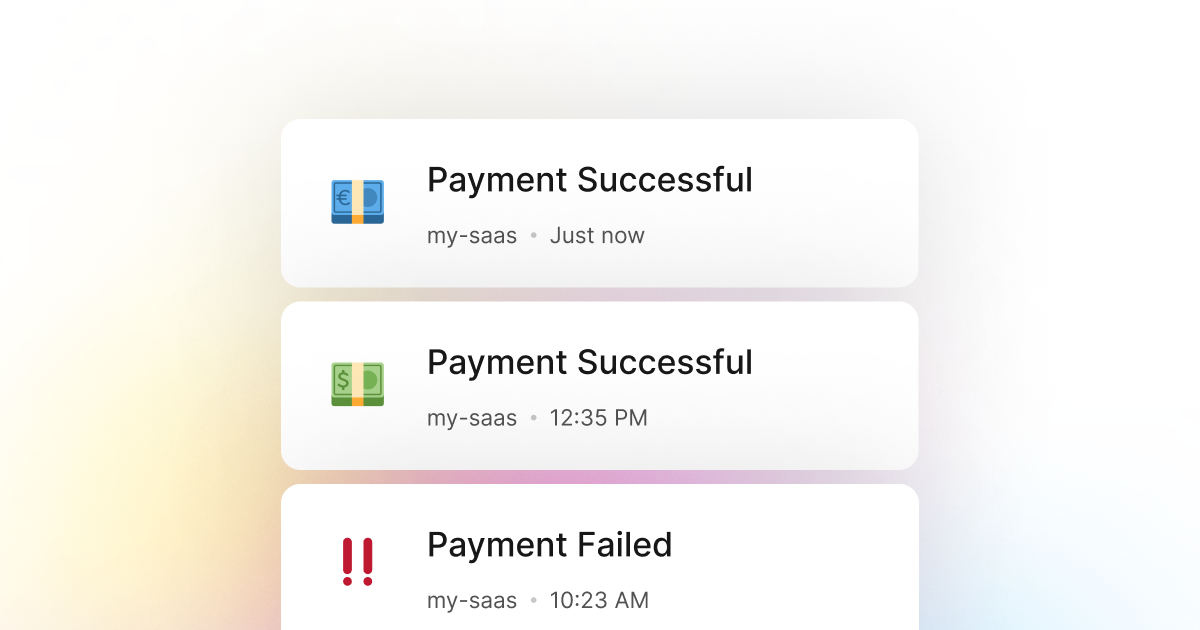When building a product or service that requires your users to pay for something, there are many ways that things can go wrong, such as delayed payments, fraud, or other such issues.
Thus, it is crucial to track these events in real-time and alert you and your team in the event of a problem.
LogSnag lets you track payment events such as User Subscription, User Purchase, User Cancellation, and User Redemption directly from your PHP application.
Setting up your account
- Create a free LogSnag account.
- Create a new project on your dashboard.
- Copy your API token from the settings page.
PHP code snippets
Using PHP with cURL
Using PHP with Guzzle
Using PHP with HTTP_Request2
Using PHP with pecl_http
PHP integration details
Connect LogSnag to your PHP code to easily track and keep a record of your product's payment events. With LogSnag, you can create simple charts and journeys to help you better understand your product. LogSnag also allows you to receive real-time push notifications on your desktop and mobile devices whenever a new payment event occurs.
Other use-cases for LogSnag
- Monitor your CI/CD build status for your PHP application
- Monitor your CPU usage in your PHP application
- Monitor when database goes down in your PHP application
- Monitor high disk usage in your PHP application
- Monitor when a user changes their email address in your PHP application
- Monitor failed logins in your PHP application
- Monitor failed payments for your PHP application
- Monitor memory usage in your PHP application
- Monitor MySQL downtime in your PHP application
- Monitor when a new feature is used in your PHP application
- Monitor your Postgres downtime in your PHP application
- Monitor Redis downtime in your PHP application
- Monitor suspicious activity in your PHP application
- Monitor when a user exceeds the usage limit for your PHP service
- Monitor when a user is being rate limited in your PHP application
- Get a notification when your PHP code is done executing
- Send push notifications to your phone or desktop using PHP
- Track canceled subscriptions in your PHP application
- Track your PHP cron jobs
- Track when a file is uploaded to your PHP application
- Track when a form is submitted to your PHP application
- Track user sign in events in PHP
- Track user signup events via PHP
- Track waitlist signup events via PHP

